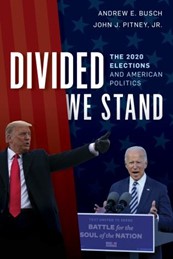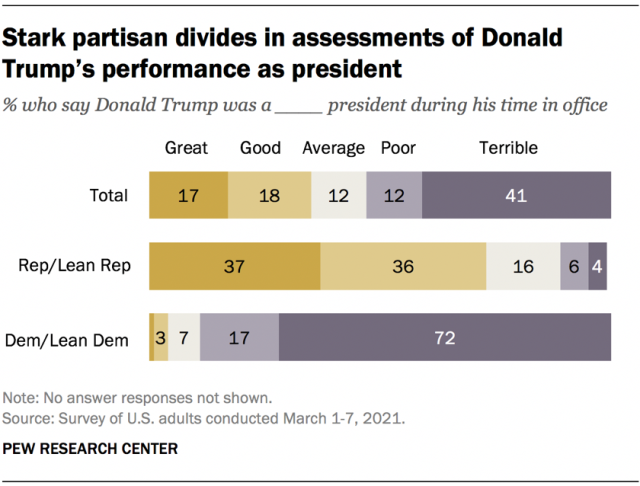Our new book is titled Divided We Stand: The 2020 Elections and American Politics. Among other things, it discusses state and congressional elections.
Freddy Brewster and Katie Licari at CalMatters:
The story twisted facts and omitted context to fit a partisan narrative. It implied then-California Rep. Gil Cisneros engaged in criminal insider trading and knowingly profited from confidential congressional coronavirus briefings in the early days of the pandemic.
Cisneros’ opponent, now-Rep. Young Kim, issued a press release featuring the story that was published Sept. 17 by the California Globe, a partisan news site. Kim also tweeted a link later that day that was retweeted 32 times and posted the story on Facebook, where it was shared 52 times and generated 40 comments attacking Cisneros. She never retracted the press release or the social media posts — not even when the Globe removed the story from its website in response to a letter from Cisneros’ attorneys. Not when Cisneros publicly called on her to do so. Nor would her spokesperson answer repeated CalMatters’ questions about it.
The damage was apparent once the votes were counted.
It happened in other CA races, too.
The misinformation in turn was amplified not only on social media but by a handful of upstart conservative partisan news outlets such as The San Joaquin Valley Sun. As politically independent newspapers have closed or slashed reporting staff, these sites have rushed in to fill the void. The Columbia Journalism Review last August reported California has at least 74 partisan sites — the most in the country, and listed those it found. The sites became friendly landing spots for political smears like the Globe story, allowing widespread distribution of misinformation or innuendo at no cost to the campaigns.
And nobody expects that to change anytime soon. There’s a likely campaign to recall Gov. Gavin Newsom on the horizon, and the NRCC recently released another four targets, for 2022: Reps. John Garamendi in the Sacramento Valley, Josh Harder in the northern San Joaquin Valley, Katie Porter in Orange County, and Mike Levin in San Diego County.
Dossiers posted on democratfacts.org, an NRCC-funded website, featured information labeled as “Hits,” as well as video footage available for political advertisements. The website recently deleted the 2020 dossiers on Democrat candidates across the country, but CalMatters archived the portion of the site devoted to California congressional candidates on archive.org.
See here for more on micro-sites in political campaigns.


